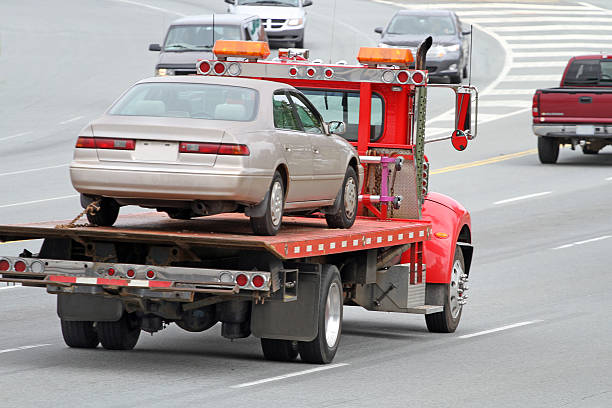When it comes to car shipping, dates are one of the most important aspects to consider. Knowing car shipping timelines will allow you to properly plan your auto transport and coordinate a smooth delivery experience. Below are some key points to understand about car shipping dates:
Transit Time Varies Based on Distance
The transit time for a car shipment, or how long it will take for your vehicle to reach its destination, depends primarily on the distance it needs to travel. As a general rule of thumb:
- For shipments within 500 miles, expect 3-5 business days transit time.
- Shipments between 500-1000 miles usually take 5-7 business days.
- Long distance transports over 1000 miles may take 7-14+ business days.
However, these are just estimates – factors like weather, traffic and carrier scheduling can impact actual transit durations. Carriers provide estimated delivery windows to set expectations.
Loading Process Requires 1-2 Business Days
After you book your car transport, the loading process begins. This involves the carrier scheduling a time to pick up your vehicle, inspecting it, and securing it on their transport truck or carrier. In general, expect loading to take 1-2 business days after booking.
Unloading Takes Half a Day or Less
Once your vehicle arrives at its destination, expect the unloading process to generally take half a day or less. Carriers aim to deliver vehicles the same day they arrive in the destination city. However, some unforeseen delays could potentially cause an extra day for delivery.
Key Factors That Can Affect Dates
Seasonal Demand Changes Timelines
Car shipping volumes fluctuate seasonally. Dates tend to be more reliable during fall and winter when demand is lower. Spring and summer see increased consumer moves, making schedules less predictable. Holiday periods around major events also see shipping backups.
Severe Weather Can Delay Transits
Adverse weather conditions like snow, ice, hurricanes or floods have the potential to slow down or even temporarily halt transport operations. Carriers build weather buffers into estimates but severe storms may still cause delays.
Last Minute Bookings Have Less Flexibility
The farther in advance you book, the more selection and control you have over dates. Last minute bookings within a week of your move dates have limited shipping options and schedules that may not align perfectly with your timeline.
Tips for Planning Around Shipping Dates
Book Your Dates 4-6 Weeks in Advance for Best Options
Planning and booking your car transport at least 4-6 weeks out gives you flexibility and choice when it comes to dates. You’ll have your pick of carriers and departures.
Build in Buffers for Delays
Always plan to have your vehicle delivered a few days before any major events so you’re not waiting on it. This acts as a cushion in case transit is delayed.
Inquire About Expedited Options
If dates are extremely time sensitive, carriers sometimes offer expedited services for rushes, surcharges apply. This can potentially shave 1-3 days off a standard transport.
Be Flexible on Your End Dates
Giving carriers a 2-3 day window on your arrival dates rather than fixed dates makes it easier to find options that fit. Maintain some flexibility on delivery.
Get Estimates from Multiple Vendors
Compare estimated delivery windows provided by several auto transport companies. A competitor may have scheduling availability that aligns better.
Communicating About Any Changes
Even with advance planning, occasional delays do happen in car shipping due to unforeseen circumstances. Maintaining open communication is key:
- Carriers will notify you as soon as possible of any changes to estimated delivery dates.
- Likewise, contact them promptly if you need to adjust your end date window.
- Be understanding if delays occur due to factors out of their control like weather.
- Document your new expected delivery dates to stay on the same page.
Good coordination and flexibility from both sides can help minimize disruptions from date changes in auto transport.
Wrapping Up
Paying attention to car shipping dates is an important part of planning your relocation or vehicle transfer. By understanding typical timelines, proactively working with carriers 4-6 weeks out and maintaining communication, you set yourself up for a smooth transport experience without surprises or delays. With the right preparation and coordination of dates, auto transport should go off without a hitch.

